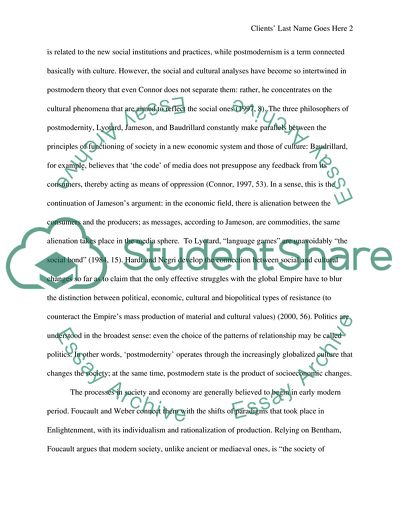Cite this document
(Modern Times: Modernity and Postmodernity Literature review - 1, n.d.)
Modern Times: Modernity and Postmodernity Literature review - 1. https://studentshare.org/philosophy/1790268-modern-times-modernity-and-postmodernity
Modern Times: Modernity and Postmodernity Literature review - 1. https://studentshare.org/philosophy/1790268-modern-times-modernity-and-postmodernity
(Modern Times: Modernity and Postmodernity Literature Review - 1)
Modern Times: Modernity and Postmodernity Literature Review - 1. https://studentshare.org/philosophy/1790268-modern-times-modernity-and-postmodernity.
Modern Times: Modernity and Postmodernity Literature Review - 1. https://studentshare.org/philosophy/1790268-modern-times-modernity-and-postmodernity.
“Modern Times: Modernity and Postmodernity Literature Review - 1”. https://studentshare.org/philosophy/1790268-modern-times-modernity-and-postmodernity.


